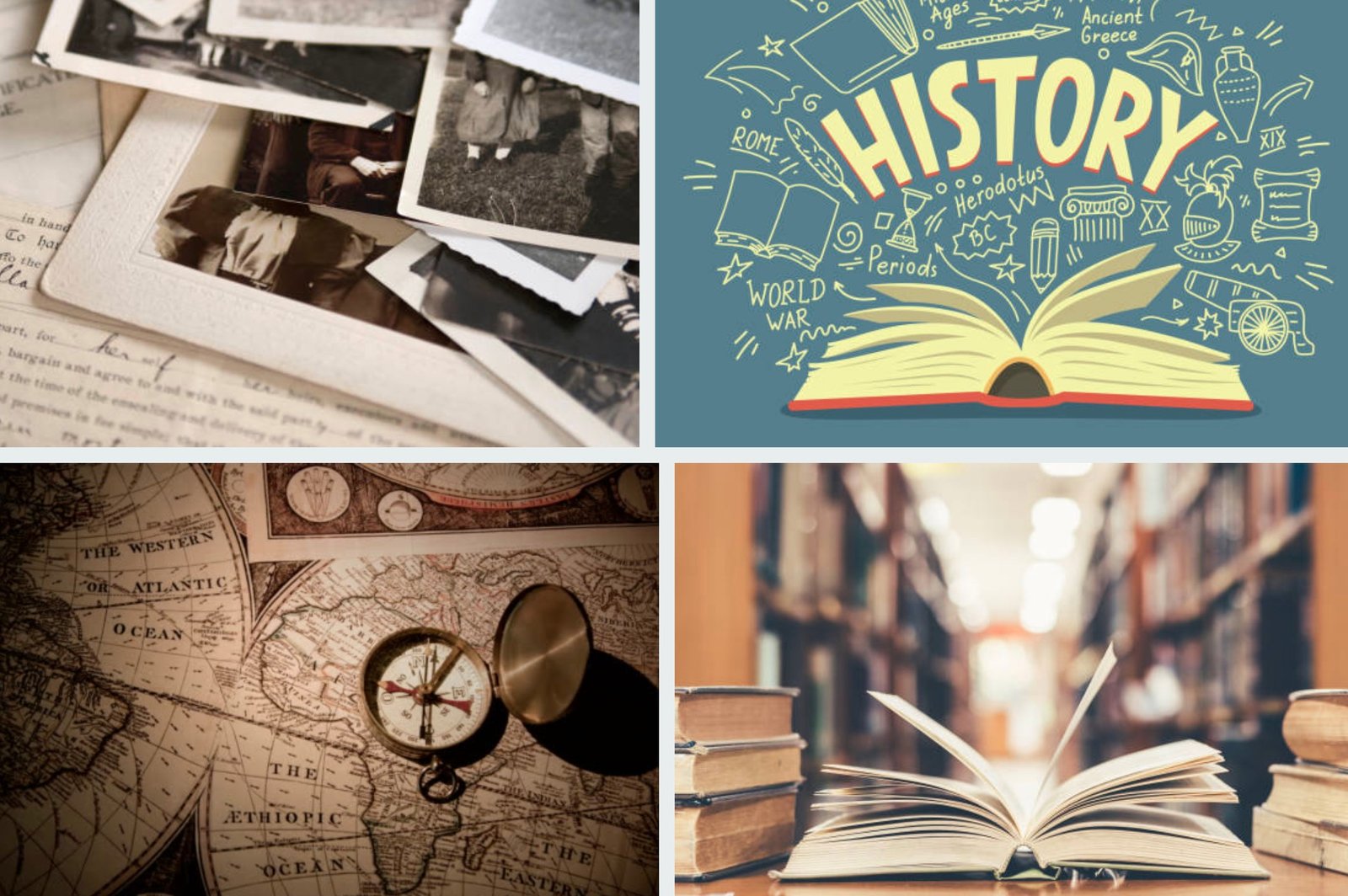Ways in which we can find the information about the past: Finding information about the past is like being a detective in a history mystery. There are several ways to uncover the secrets of bygone days:
Books and Historical Texts
These are like time machines in paper form. Historians write books packed with information about different eras. Reading old letters, diaries, and newspapers can also give you a glimpse into daily life in the past.
- Visit Libraries: Public and university libraries often have vast collections of historical books, manuscripts, and records.
- Online Bookstores and E-books: Websites like Amazon or Google Books have extensive collections of historical texts available for purchase or download.
- Academic Journals: Access academic databases like JSTOR or Google Scholar for scholarly articles on historical topics.
Museums and Archives
Walking into a museum is like stepping into a treasure chest of history. Museums display artifacts from different periods, and archives hold important documents, maps, and photographs.
- Physical Visits to Museums: Explore local and national museums which often have exhibitions on various historical periods.
- Online Archives and Virtual Tours: Many museums and archives offer digital collections and virtual tours on their websites.
- Public Record Offices: Visit national or local record offices or archives to access historical documents, census records, and more.
Oral Histories and Interviews
Chatting with older family members or people who have experienced historical events is like listening to a living history book. Their stories and memories can provide personal insights into the past.
- Family Conversations: Talk to older family members about their experiences and memories.
- Community Projects: Participate in or listen to community oral history projects, often found in local libraries or community centers.
- Documentaries and Podcasts: Look for documentaries or podcasts that feature interviews with people who have lived through significant historical events.
Archaeological Sites
Visiting places where historical events occurred or where ancient civilizations lived is like exploring history’s playground. Archaeologists dig up artifacts and ruins that tell us how people lived, worked, and played.
- Guided Tours: Participate in guided tours of archaeological sites to get expert insights.
- Educational Programs: Many archaeological sites and historical parks offer educational programs or workshops.
- Volunteering on Excavations: Join archaeological digs or volunteer with organizations that conduct excavations.
Historical Films and Documentaries
Watching these is like having a front-row seat to the past. They can bring history to life through reenactments, interviews, and analyses.
- Streaming Services: Use platforms like Netflix, Amazon Prime, or YouTube to find historical documentaries.
- Educational Television Channels: Watch channels like the History Channel or National Geographic.
- Film Festivals and Libraries: Look for film festivals featuring historical films or check out DVDs from local libraries.
Online Resources and Databases
The internet is like a giant digital library of history. There are countless websites, databases, and online archives where you can research historical topics.
- Dedicated History Websites: Sites like BBC History, History.com, or National Archives have extensive resources.
- Academic Databases: Use online databases like JSTOR, Project Muse, or Google Scholar for historical research papers.
- Digital Libraries: Explore digital libraries like the Library of Congress or Europeana for digital copies of historical texts and documents.
Art and Music
Looking at art and listening to music from different times can be like feeling the emotions of the past. They reflect the culture, beliefs, and experiences of people from those times.
- Art Galleries and Exhibitions: Visit art galleries that feature historical art collections.
- Music Libraries and Archives: Explore collections in music libraries or online archives for historical recordings.
- Cultural Festivals: Attend cultural festivals or concerts that focus on traditional or historical music and art.
Each of these methods offers a unique window into the past, allowing us to piece together the story of human history from different perspectives.

